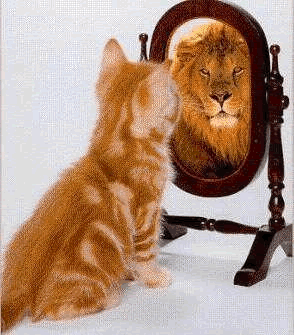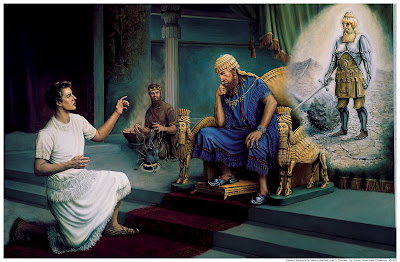Yesterday in Relief Society, we had an amazing lesson. We discussed Elder Holland's talk "Like a Broken Vessel". Whether you are LDS or not, this is an inspiring talk that everybody can relate to. He discusses having hope when mental illness strikes, mainly depression. Elder Holland talks with such power and love, that you can't help but be moved by his testimony and the spirit.
As sisters we discussed and shared experiences relating to depression and his talk. The spirit was so strong, it moved many of the sisters to tears. This can be a sensitive topic. Emotions were strong and love for our Savor filled the room.
I'd like to share some of the highlights of his talk and add my own reflections. I've never suffered from depression or any other from of mental illness, but someone very close to me does suffer from a mental illness. Whether you are the the one suffering or the caregiver of such, I know you can find comfort and hope in this short talk.
How can we keep hope during dark and troubling times when mental illnesses such as depression strike? Elder Holland gives us some guidance in his talk.
1. God gave us a Redeemer, that we might triumph over the tests and trials of this mortal life. Elder Holland reminds us that we are living in a fallen world, and that we did in fact, choose to live in this fallen world. It is here where pursuit of godliness "will be tested and tried again and again."
"Of greatest assurance in God's plan is that of a Savor was promised, a Redeemer, who through our faith in Him would lift us triumphantly over those tests and trials, even though the cost to do so would be unfathomable for bot the Father who sent Him and the Son who came. It is only an appreciation of this divine love that will make our own lesser suffering first bearable, then understandable, and finally redemptive." - Elder Holland
2. Above all, never lose faith in your Father in Heaven, who loves you more than you can comprehend. Elder Holland quotes President Monson in saying:
That love never changes...It is the there for you when you are sad or happy, discouraged or hopeful. God's love is there for you whether or not you feel you deserve [it]. It is simply always there".Elder Holland admonishes us to never doubt God's love for us and never harden our hearts toward Him.
 3. Faithfully pursue the time-tested devotional practices that bring the Spirit of the Lord into your life. Do the things that bring the spirit into your life. It is by the strength of God that we pull through hard times. Draw closer to him. Pray, read your scriptures, partake of the sacrament, and attend the temple if possible.
3. Faithfully pursue the time-tested devotional practices that bring the Spirit of the Lord into your life. Do the things that bring the spirit into your life. It is by the strength of God that we pull through hard times. Draw closer to him. Pray, read your scriptures, partake of the sacrament, and attend the temple if possible.4. Seek the counsel of those who hold keys for your spiritual well-being. Ask for and cherish priesthood blessings. I know that in the hardest times of my life, priesthood blessings have brought incredible strength to a weary soul. I've learned that you do not have to be on your deathbed to have enough reason to ask for a blessing. God wants us to turn to him, he wants to bless us. This is why he has given the priesthood to worthy men. He uses these worthy men to pronounce blessings upon our heads and to give us guidance, comfort, strength and courage.
If you do not have a husband or family member who is capable of giving you a priesthood blessing, there are home teachers, bishops, ward members, and missionaries who can give blessings if asked. There is always this resource available.
 5. If capable, take the sacrament every week. I know that when there are prolonged periods where I have missed the sacrament for one reason or another, that I can feel my spirit shrink and weaken. There is great strength in the sacrament. Whenever I partake of the sacrament, my strength and faith is renewed. It is a time when we reflect on the Atonement of our Lord and Savior, Jesus Christ. It is through him we receive strength to carry on and one day, make it back to our Father in Heaven.
5. If capable, take the sacrament every week. I know that when there are prolonged periods where I have missed the sacrament for one reason or another, that I can feel my spirit shrink and weaken. There is great strength in the sacrament. Whenever I partake of the sacrament, my strength and faith is renewed. It is a time when we reflect on the Atonement of our Lord and Savior, Jesus Christ. It is through him we receive strength to carry on and one day, make it back to our Father in Heaven.6. Believe in miracles. Elder Holland said "I have seen so many of them come when every other indication would say that hope was lost. Hope is never lost." I too, have seen miracles in my own life. When it seems like there is no light at the end of the tunnel, when we think the sun will never shine again, by our faith it will. The light will come. I echo the words of Elder Holland, Hope is never lost.
 7. If things continue, seek advice. If things persist, "seek the advice of reputable people with certified training, professional skills, and good values." He encourages us to be honest with them about the struggles we've been facing, then pray about the advice they've given.
7. If things continue, seek advice. If things persist, "seek the advice of reputable people with certified training, professional skills, and good values." He encourages us to be honest with them about the struggles we've been facing, then pray about the advice they've given.There are some of us, while we may not be suffering from an illness, we are caregivers to someone who is. I fit more into this category. Elder Holland's words can give us strength. Let us not be overwhelmed and let us not assume we can fix everything. I believe and know that sometimes the person with mental illness such as depression, bipolar or schizophrenia is not the only one who is to learn and grow from their situation. It's those around, the caregiver, the passerby-er, a friend or acquaintance who are to learn and grow from the situation as well.
A family member who is dear to my husband and I suffers from schizophrenia. This can be very hard to see, most times, there is nothing we can do. But, we always learn vastly important lessons that will carry on with us through our life. Love always, cherish the moments together, etc. Our challenges will only help us in the future, in ways we cannot know right now. How much more will we be able to relate and help another, because of the trials of our past? How much easier will it be for us to place an arm around a shoulder and comfort someone in need? We came to earth to grow, to learn and to be tested. Growth does not come by gliding through life. Growth comes from trials and challenges. Let us be strong and have faith during these times, because God will not give us a commandment, trial or challenge that we cannot keep, overcome or endure. As Elder Holland said "We are infinitely more than our limitations or afflictions!".
I hope that if you are struggling, or know someone who is, listen to the words of one of God's apostles and may it give you strength and courage to continue on and endure. I invite you to take a few minutes and listen to Elder Holland as he delivers his powerful message titled "Like a Broken Vessel" May it help and God bless you.
- SamiMae









